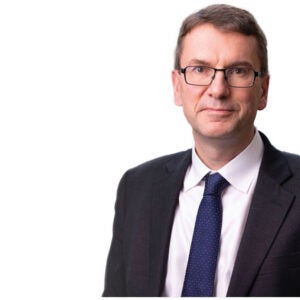
Between Covid-19, Brexit and broader global instability, CFOs have their work cut out – but life goes on. The need to steer the ship through what many people hope is a once in a lifetime black swan event has demanded a combination of laser-like focus on the detail, and an ability to take a step back and look at the bigger picture – including what success looks like and how to achieve it.
For those at the recent FDE CFO Symposium, it was clear that taking the ‘business as usual’ approach has its limits – and that the savvy finance leader has to be ready to spot opportunities to innovate and thrive.
There were several themes that emerged over the course of a packed day: the challenge of suddenly running a finance function remotely; preserving morale and control in a time of ongoing crisis; and how to plan for a post-Covid world where the ‘new normal’ may, in fact, not end up very normal at all. All of these are primary concerns for any company dealing with the effects of the pandemic – bringing different teams together to solve common problems.
Emergency measures
For James Kidd, deputy CEO and CFO at the Aveva Group, his team was vital in keeping the lights on as the pandemic developed. “I think it revealed our flexibility and adaptability in the business,” he said, pointing out that like everyone, Aveva had to change very quickly to new ways of working.
“For example, having to deliver implementation services to our customers entirely remotely, without being on the customer site was a challenge. Prior to the pandemic we had service people travelling to the customer to be on-site for prolonged periods of time, whereas we very quickly had to learn how to use the cloud and collaborate differently with their customers. So the adaptability of our organisation shone through.”
Kidd’s relief that systems and processes had held steady was echoed by many speakers at the event.

“We were fortunate in terms of the strength of the business and the balance sheet,” recalled Joanne Wilson, CFO of drinks giant BritVic. “So we were coming off strong market share gains and we’d completed a supply chain transformation in GB as well as recently refinanced our RCF.”
2/3
The number of CFOs who expect the bulk of their firm’s workforce to return to working from an office by the third quarter of this year.
Deloitte
“From an internal perspective, just having those open communications and two-way comms so that people really understood what was happening and we could support them, was massive.”
Joanne Wilson, BritVic
Wilson pointed out that the key to BritVic’s successful handling of the crisis was to keep lines of communication open. “Through this we really upweighted our comms and engagement efforts. It was so important that we did that – not just internally but also externally. From an internal perspective, just having those open communications and two-way comms, so that people really understood what was happening and we could support them through that was massive.”
Looking ahead
In short, many CFOs suddenly have found themselves becoming communicators in chief, as well as systems integrators – while their CEOs are sounding boards and strategists. More to the point, the demands on the next generation of CFOs will inevitably change. James Kidd, for his part, pointed to the growing importance of harnessing data as a key shift in the coming decade. “Data is becoming bigger and bigger,” he explains, “and the business requires more insight into how it is performing and also how to measure actual success.”
In Kidd’s view, the move away from the traditional reliance on financial measures – and towards future-predicting data analytics more – will play a big part in the lives of finance teams going forward. “How we think about planning, forecasting and how we can better scenario plan new potential outcomes,” will be vital, he says. “So data is certainly a big feature and you know that’s something that we as a finance team are very good at.”
Of course, those who believe they can predict the future are either mad or foolish, but the savvy CFO now has more tools at their disposal than ever before. Ken Bowles, group CFO at Smurfit Kappa is perhaps the model for the forward-thinking CFO, one with a handle on the core financials but also with an understanding of how the business fits into wider societal and environmental trends.
“I think what the CFO can bring to that discussion is to balance the abstract concept of sustainability and what the roadmaps toward net zero [carbon emissions] looks like, with the CFO skill. That skill allows us to say: ‘Hold on, I’ll actually show you the road map in terms of the capital plan, the outputs and the financial returns that go along with that’.”
Bowles believes one of his key roles is to provide the framework for the future. “People will be asking: ‘Show me how you actually get there’, and that’s where the CFO steps into that question. A lot of organisations should [explain that]: ‘I understand the ambition here, but let’s talk about how we achieve that ambition along a road map that’s achievable’. If you a CFO can display that to people you will get huge buy-in; but if you can’t, I think you lose the audience fairly quickly.”
People like people
Bart Adam, CFO of Securitas, was in the unique position of looking back on a 20 year career at the company and getting set for a move away from the CFO’s office. As his tenure draws to a close – he’s recently overseen the successful acquisition of Stanley Security – Adam was able to offer two key lessons that every CFO or business leader should take to heart.

“First of all, everything in the company is about people,” Adam explains. “The people are really your key ingredient to anything that you want to achieve, be that working with clients, introducing technology, becoming more efficient: you need to have the people on board.”
“The second thing I have learned is really that you need to stick to your DNA. Because your strategy is something else. That’s about saying what are you heading for in the future – but it’s so important that you understand your DNA as a company.”
In Adam’s view, that means understanding your strengths and weaknesses. “It’s important that when you decide on a strategy, you keep the DNA of the company in mind – because if the strategy does not relate to the DNA it will not be successful.”
Tech savvy
Naturally, technology was central to many of these discussions. For instance, a distinguished panel of experts met to discuss the importance of transformative technologies – and how tech can drive genuine change. Michel Hofland, group financial controlling director at the Urgo Group, argued that CFOs find themselves in the middle of a revolution. “That revolution impacts both the back office but also the front office, in relation to our customers internally and externally,” he said.
“There are new functionalities that have developed at a tremendous pace in the last ten years – and they are still accelerating around automation, easier collaboration and advanced analytics. Everything is brought about by cognitive technologies. And this will not only impact our administrative processes, but also everything that has to do with information and decision-taking.”
This transformation was illustrated by David Wray, global accounting and reporting senior director, group accounting at Huawei Global Finance (UK), who told the panel that, for him, the core issue when deciding on a transformation strategy isn’t cost – but usefulness.
“We have [a] different perspective in terms of how we approach finance transformation and automation,” he explained. “What we look at is whether or not we can take out redundancy in process – and frankly ask whether we are able to restructure jobs so that employees have more meaningful roles and can contribute more to business partnering and the greater use of analytics.”
Wray gave an example of how tech has changed how finance works at Huawei. “If you can imagine it’s walking into the equivalent of an auditorium and you see floor-to-ceiling, wall-to-wall completely covered in screens. And now imagine that you operate in more than 170 countries and you’re the person who’s lucky enough to have responsibility for the month-end close – and you’ve got to make sure that close is happening in all of those entities with the hundreds of systems and interfaces that go along with it.”
Huawei’s solution, in other words, has completely automated the global coordination of month-end processes, so that the finance team can easily get a visual representation of what’s happening across the entire group. “They can see what interfaces have potential issues and which ones might have reconciliation issues,” Wray added.
“So they can parachute in teams to go and help any kind of close-related challenges or issues whether their resource constraints bottlenecks or it to basically go troubleshoot those and solve them so that the close process happens within a couple of days with all errors looked at.”
It’s clear that companies are starting to build digitalisation into their DNA. Wray’s contribution combined much of the wisdom on display at the symposium: the determination to harness technology to underpin performance improvement, the openness to innovation and new ideas, and the drive towards greater visibility of future outcomes. Judging by the CFOs in attendance, then, the future is in safe hands.
<60%
Just under 60%, report that demand for their businesses’ products and services has already returned to pre-pandemic levels or will do so by the end of this year.
Deloitte






